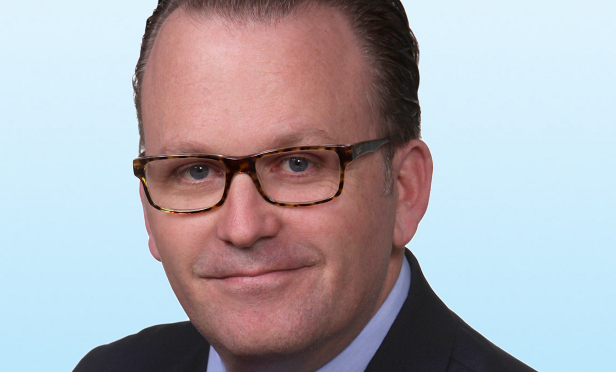 part 1 Colliers International Martin Pupil manufacturing economy GlobeSt.com: Is San Francisco as the center of the new economy, as you call it, a permanent change? Pupil: Hans Mumper tech firms office institutional investor economic GlobeSt.com: Have you identified capital markets as a growth sector, especially here in the west, and are you growing that line of business? Pupil: institutional-investment industrial R&D investors, developers commercial real estate GlobeSt.com: Looking forward, how do you see the economy shaping up, especially for the capital markets? Pupil: ULI Black Swan 9/11 How are your capital markets brokers doing in Northern and Southern California, especially in the Inland Empire, where manufacturing is also making a comeback? Pupil: John Hollingsworth industrial logistics warehousing Fisker Automotive L.A. Times National Public Radio International Herald Tribune GlobeSt.com: Does Fisker, which went bankrupt with government subsidies a few years ago, stand a chance this time around? Pupil: GlobeSt.com: What about Tesla, since we're talking about electric cars? Pupil: Tesla Elon Musk University of California at Berkeley GlobeSt.com: Since Colliers went public on both the NASDAQ and the Toronto stock exchanges, did this make a difference when dealing with Capital Market clients? Pupil:
part 1 Colliers International Martin Pupil manufacturing economy GlobeSt.com: Is San Francisco as the center of the new economy, as you call it, a permanent change? Pupil: Hans Mumper tech firms office institutional investor economic GlobeSt.com: Have you identified capital markets as a growth sector, especially here in the west, and are you growing that line of business? Pupil: institutional-investment industrial R&D investors, developers commercial real estate GlobeSt.com: Looking forward, how do you see the economy shaping up, especially for the capital markets? Pupil: ULI Black Swan 9/11 How are your capital markets brokers doing in Northern and Southern California, especially in the Inland Empire, where manufacturing is also making a comeback? Pupil: John Hollingsworth industrial logistics warehousing Fisker Automotive L.A. Times National Public Radio International Herald Tribune GlobeSt.com: Does Fisker, which went bankrupt with government subsidies a few years ago, stand a chance this time around? Pupil: GlobeSt.com: What about Tesla, since we're talking about electric cars? Pupil: Tesla Elon Musk University of California at Berkeley GlobeSt.com: Since Colliers went public on both the NASDAQ and the Toronto stock exchanges, did this make a difference when dealing with Capital Market clients? Pupil:  part 1 Colliers International Martin Pupil manufacturing economy GlobeSt.com: Is San Francisco as the center of the new economy, as you call it, a permanent change? Pupil: Hans Mumper tech firms office institutional investor economic GlobeSt.com: Have you identified capital markets as a growth sector, especially here in the west, and are you growing that line of business? Pupil: institutional-investment industrial R&D investors, developers commercial real estate GlobeSt.com: Looking forward, how do you see the economy shaping up, especially for the capital markets? Pupil: ULI Black Swan 9/11 How are your capital markets brokers doing in Northern and Southern California, especially in the Inland Empire, where manufacturing is also making a comeback? Pupil: John
part 1 Colliers International Martin Pupil manufacturing economy GlobeSt.com: Is San Francisco as the center of the new economy, as you call it, a permanent change? Pupil: Hans Mumper tech firms office institutional investor economic GlobeSt.com: Have you identified capital markets as a growth sector, especially here in the west, and are you growing that line of business? Pupil: institutional-investment industrial R&D investors, developers commercial real estate GlobeSt.com: Looking forward, how do you see the economy shaping up, especially for the capital markets? Pupil: ULI Black Swan 9/11 How are your capital markets brokers doing in Northern and Southern California, especially in the Inland Empire, where manufacturing is also making a comeback? Pupil: John © Touchpoint Markets, All Rights Reserved. Request academic re-use from www.copyright.com. All other uses, submit a request to [email protected]. For more inforrmation visit Asset & Logo Licensing.







